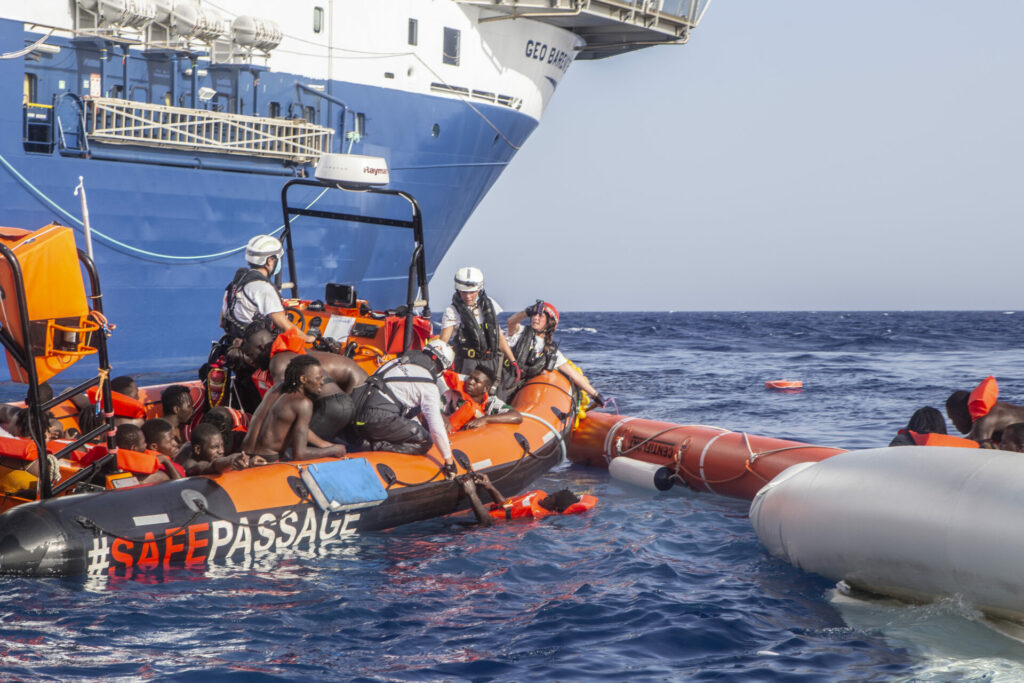Search and rescue operations at sea have often been the target of criticism from anti-immigration political forces, who argue they drive migration, but a recent study has contested these claims.
The number of people attempting to flee to Europe via the world's most dangerous migration route – the Central Mediterranean route (CMR) – has increased, as have the search and rescue operations, some state-run but mostly run by civilian organisations such as Médecins Sans Frontières (MSF), which save the lives of hundreds of thousands of refugees and migrants every year.
A recent study debunks anti-immigration claims that these rescue operations are a so-called "pull" factor. "These are hypothesised to foster irregular migration (and thereby migrant fatalities) by altering the decision calculus associated with the journey," the study reads.
However, scientists noted that they have "shown that the inflow of migrants along the CMR is not affected by the presence of search-and-rescue operations, as proposed by proponents of the ‘pull factor' claim."
Better explained by other factors
Every year, a high number of migrants drown on the route between the Libyan, Tunisian, Maltese and Italian search-and-rescue areas while attempting to cross into Europe on unseaworthy vessels, often to escape life-threatening conditions. The start of this year marked the deadliest quarter in this area since 2017.
The rescue of these people, who according to some political parties, including in Belgium, are "illegally" migrating to Europe, has become a highly controversial issue in EU migration policy, an agenda that has even led to NGO crew members involved in sea-rescue charities being sued in Italy. Some in this camp claim that migrants are encouraged to cross if they believe they will be rescued in the event of a shipwreck.
To find out whether this was the case, Professor Julian Wucherpfennig of the Berlin Hertie School and his co-authors collected data from several agencies and organisations involved in migration, including the EU's border agency Frontex and the Tunisian and Libyan coastguards, as well as the Dutch NGO United for Intercultural Action, over a period from 2011 to 2020.
The results showed that the number of sea trips does not depend on the number of rescues. Even when analysing the largest rescue operations, such as the Italian Navy's operation Mare Nostrum which saved more than 100,000 people in the Mediterranean Sea between 2013 and 2014, no link could be established.
Conflicts, natural disasters and the price of commodities in the countries of origin were found to have a greater effect on the number of crossings. The weather on the day of embarkation also had an influence. This provides an argument against this anti-immigration discourse, highlighting that these operations "cannot explain why people decide or are forced to move in the first place."
Meanwhile, the researchers also found that the Libyan Coast Guard’s involvement in illegally pushing back boats with the help of the EU did affect the number of arrivals to Europe, "although many still attempt the crossing despite the increasing difficulty.

